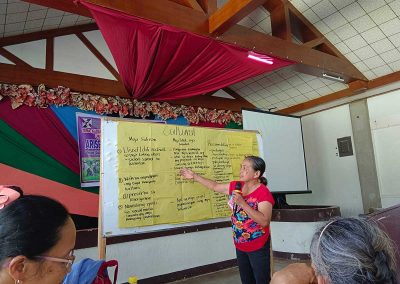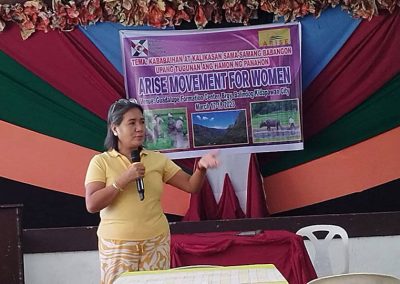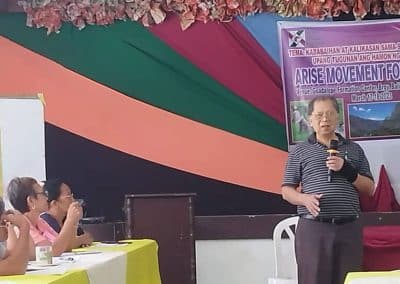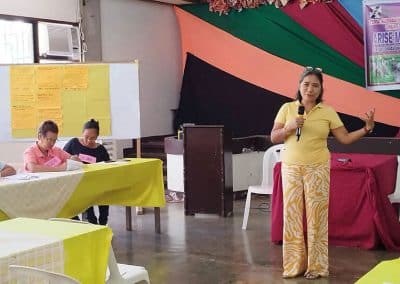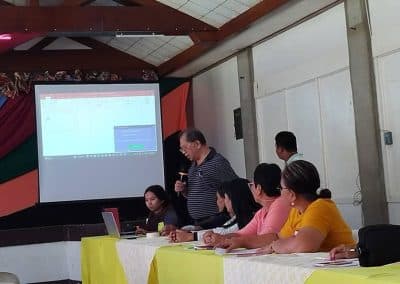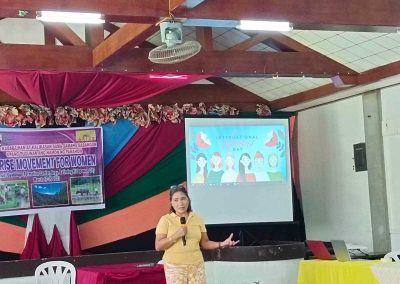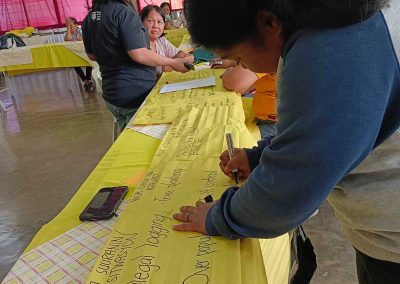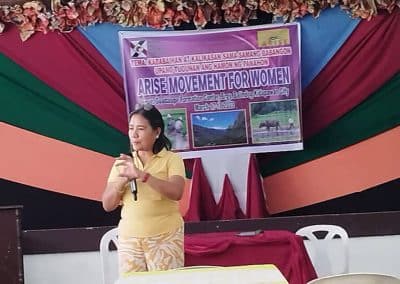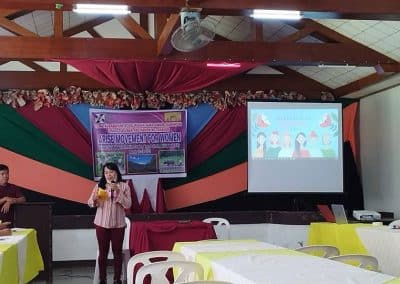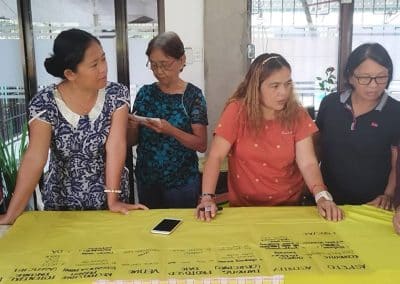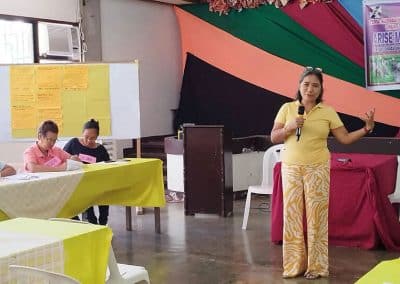Women Rise Against Disaster and Climate Change

Natural and man-made disasters under a worsening climate primarily harm women more than men. They are more likely to be displaced or perished as they defend their families, homes, and livelihood while also caring for the young, old, and ill. Their contribution to rebuilding the community is undeniable yet, their vulnerabilities are frequently overlooked and the majority of responses are gender-blind.
Embracing women’s empowerment, IRDF celebrates International Women’s Month, with 35 women leaders from North Cotabato and Davao Del Sur in a two-day training on integrating gender into community-based disaster risk management held in Kidapawan City on March 17-18, 2023. The activity aims to address gender mainstreaming gaps in local and community disaster risk management by ensuring an inclusive DRRM plan.
The activity provides women a platform to showcase their abilities and expertise in all DRRM and climate change-related thematic areas as they shared their collective experiences during conflict situations and calamities like earthquakes, floods, and drought that hit their respective communities.
A SWOT analysis was facilitated by Maria Anabel Julian of the Freedom from Debt Coalition to assist women in analyzing their organizational and personal strengths, weaknesses, opportunities, and threats. Among the priority issues identified include women’s participation in decision-making, women’s reproductive health, opportunities for lifelong learning, livelihood, education for children and young people, and environmental protection. These were incorporated into the action plans to boost women’s participation in community preparedness, response, and recovery following disasters.
In his remarks to the participants, IRDF President Rene Ofreneo emphasized the need for gender-responsive, community-based disaster risk reduction and climate change resilience programs so that men and women can collaborate successfully for the safety and security of their homes and communities.
IRDF Executive Arze Glipo reiterated the significance of giving women the chance to address their strategic and practical gender needs to develop their leadership abilities and participation alongside men. While IRDF, with its partners is committed to gender equality, the only way for women, men, young people, and communities to prepare and defeat the damaging impact is to rise together against disasters and climate change.

